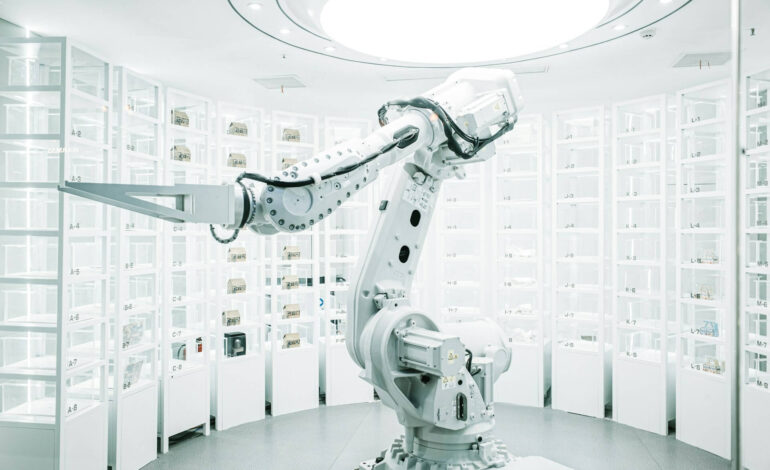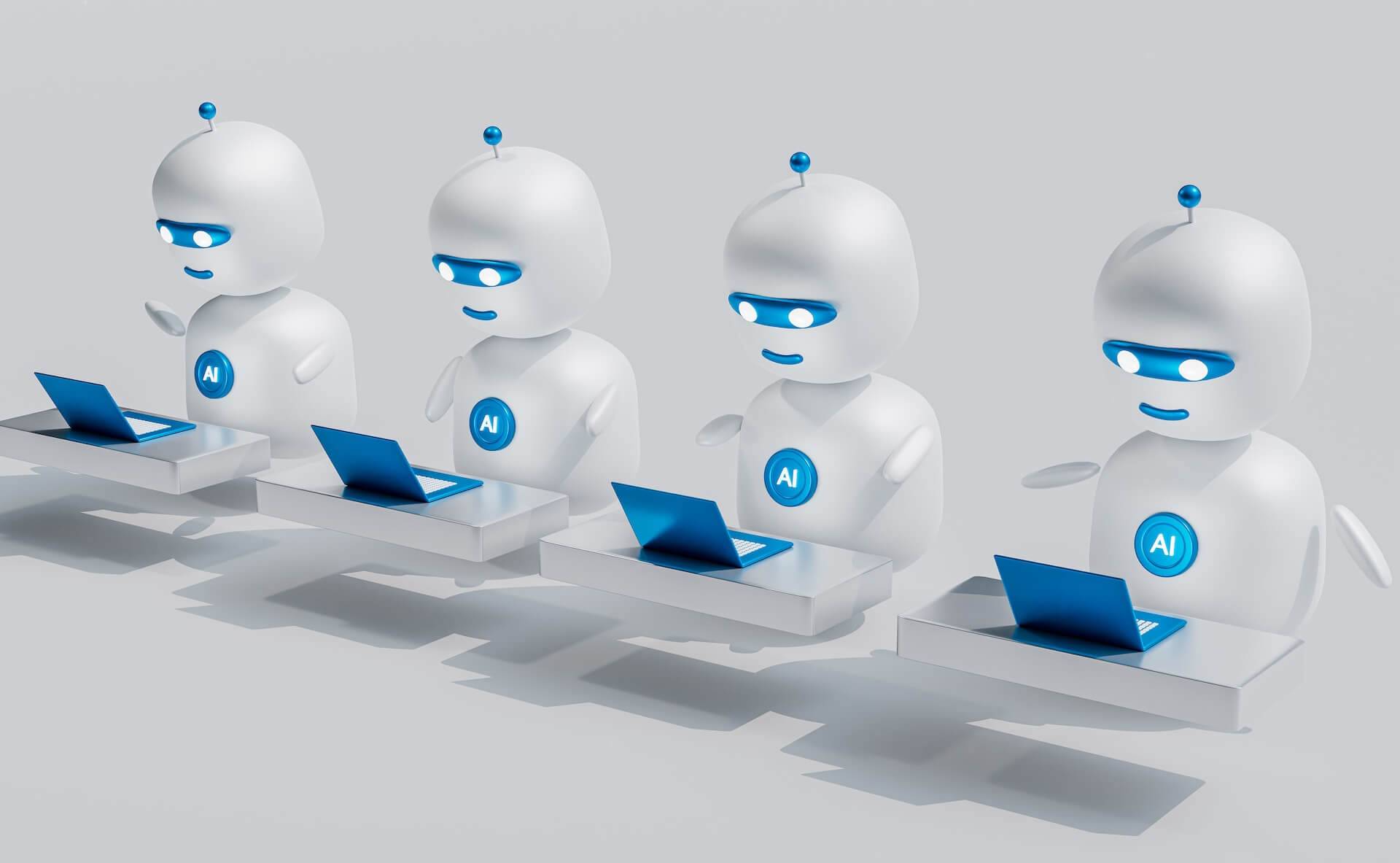The Rise of AI Innovations: Transforming Everyday Life and Code Assistance

As we step into 2025, artificial intelligence (AI) continues to reshape the landscape of technology and society. From groundbreaking innovations showcased at major events like CES 2025 to the integration of AI into everyday life, the impact of AI is profound and far-reaching. This article explores the latest AI innovations, their applications in daily activities, the rise of AI code assistants, and the ethical considerations surrounding AI use.
AI Innovations: A Glimpse into the Future
The Consumer Electronics Show (CES) 2025 highlighted a plethora of AI innovations that promise to revolutionize various industries. Companies like Arm and NVIDIA showcased their cutting-edge technologies that are setting the stage for a new era of computing. For instance, Arm’s partnership with the Aston Martin Aramco Formula One Team aims to leverage AI for enhanced performance both on and off the track, emphasizing the importance of STEM education and inclusivity in technology fields.
Key Innovations from CES 2025
-
NVIDIA DRIVE AGX Thor
This centralized computing system delivers advanced AI capabilities for automotive applications, enabling manufacturers to produce software-defined vehicles (SDVs) that are smarter and more efficient. The integration of AI in automotive technology not only enhances performance but also improves safety features through predictive analytics.
-
Project DIGITS
NVIDIA introduced this personal AI supercomputer designed for developers, democratizing access to high-performance AI computing. This innovation is expected to spur a new wave of creativity and research in AI applications, making it easier for developers to experiment with machine learning models without heavy financial investments.
-
Alif Semiconductor’s Ensemble Microcontrollers
These microcontrollers integrate Arm’s Ethos-U85 NPU, allowing for advanced AI capabilities at the edge. This is particularly beneficial for applications requiring real-time processing without reliance on cloud services, such as autonomous drones or smart manufacturing systems.
-
AI-Powered Robotics
Robotics companies showcased advancements in autonomous robots capable of performing complex tasks in dynamic environments. These robots utilize AI algorithms to navigate obstacles, learn from their surroundings, and adapt to new challenges, making them invaluable in sectors like logistics, healthcare, and agriculture.
-
Smart Home Innovations
Smart home devices are becoming increasingly sophisticated with integrated AI functionalities. From smart refrigerators that can suggest recipes based on available ingredients to security systems that use facial recognition technology for enhanced safety, these innovations are transforming how we interact with our living spaces.
These innovations not only highlight the technological advancements in AI but also reflect a broader trend toward integrating AI into various sectors, including automotive, healthcare, consumer electronics, and home automation.
AI in Everyday Life
As AI technology matures, its presence in our daily lives becomes increasingly pronounced. From smart home devices to personalized recommendations on streaming platforms, AI is enhancing convenience and efficiency.
Everyday Applications of AI
-
Smart Home Devices
Products like smart speakers (e.g., Amazon Echo or Google Nest) utilize natural language processing (NLP) to understand voice commands. These devices can control lighting, adjust thermostats, play music, or provide information—all tailored to user preferences.
-
Personalized Content Recommendations
Streaming services like Netflix and Spotify employ machine-learning algorithms to analyze user behavior and preferences. By examining viewing habits or listening patterns, these platforms deliver tailored content recommendations that keep users engaged and enhance their experience.
-
Healthcare Monitoring
Wearable devices equipped with AI can monitor health metrics in real-time. For instance, smartwatches can track heart rates, sleep patterns, and physical activity levels while providing insights into overall health trends. These devices can alert users and healthcare providers about potential health issues before they escalate.
-
Customer Service Chatbots
Many businesses are integrating AI-powered chatbots into their customer service operations. These chatbots can handle routine inquiries efficiently while learning from interactions to improve responses over time. This not only enhances customer satisfaction but also reduces operational costs for companies.
-
Smart Assistants for Productivity
Tools like Microsoft’s Cortana or Apple’s Siri assist users in managing their schedules, setting reminders, or finding information quickly. These virtual assistants utilize voice recognition and machine learning to become more effective over time.
The Impact of AI on Daily Routines
The integration of AI into everyday life has led to significant changes in how we approach tasks:
-
Time Management
With smart assistants helping manage schedules and reminders, individuals find it easier to prioritize tasks effectively.
-
Enhanced Decision-Making
Personalized recommendations based on data analysis allow consumers to make informed choices about products or services.
-
Increased Accessibility
AI technologies are making information more accessible for individuals with disabilities through voice recognition software or text-to-speech applications.
-
Home Automation
Smart home systems enable users to automate routine tasks—like adjusting temperature settings or lighting—resulting in increased energy efficiency and comfort.
These examples illustrate how AI is seamlessly integrating into our routines, making tasks easier and more efficient while enhancing overall quality of life.
The Emergence of AI Code Assistants
One of the most significant developments in recent years is the rise of AI code assistants. These tools leverage machine learning algorithms to assist developers in writing code more efficiently. By providing suggestions, debugging assistance, and even generating code snippets based on natural language inputs, AI code assistants are transforming software development.
Benefits of Using AI Code Assistants
-
Increased Productivity
By automating repetitive coding tasks and offering real-time suggestions based on context-aware algorithms, developers can focus on more complex problem-solving aspects of their work rather than getting bogged down by syntax errors or boilerplate code.
-
Error Reduction
Advanced code assistants can identify potential errors during coding sessions by analyzing patterns within the codebase and suggesting corrections before deployment. This helps developers catch mistakes early in the coding process.
-
Learning Tool for New Developers
For those new to programming or unfamiliar with specific languages or frameworks, these tools provide valuable insights into best practices and coding standards through contextual suggestions that enhance learning experiences.
-
Collaboration Enhancement
In team settings where multiple developers work on a project simultaneously, code assistants can facilitate better collaboration by providing consistent suggestions aligned with team coding standards.
Prominent examples include GitHub Copilot and OpenAI Codex:
- GitHub Copilot uses deep learning models trained on vast amounts of publicly available code to generate contextually relevant code snippets as developers type.
- OpenAI Codex, which powers GitHub Copilot among other applications, enables users to interact with programming languages using natural language queries—allowing them to describe what they want in plain English rather than writing out detailed code instructions manually.
Challenges Faced by Code Assistants
While the benefits are significant, there are challenges associated with using AI code assistants:
-
Dependence on Quality Data
The effectiveness of these tools heavily relies on the quality of training data used during development; biased or incomplete datasets may lead to suboptimal suggestions.
-
Intellectual Property Concerns
As these tools generate code based on existing repositories available online (often without explicit permission), questions arise regarding ownership rights over generated content.
-
Skill Degradation Risks
Over-reliance on automated suggestions may hinder skill development among novice programmers who might not fully grasp fundamental concepts if they lean too heavily on assistance without understanding underlying principles.
Ethical Considerations in AI Use
As with any powerful technology, the rise of AI brings forth important ethical considerations that must be addressed. The potential for misuse or unintended consequences necessitates a thoughtful approach to developing and deploying AI systems.
Key Ethical Issues Surrounding AI
-
Bias in Algorithms
If not carefully managed during development processes—particularly when curating training datasets—AI systems can perpetuate existing biases present within those datasets leading to potentially discriminatory outcomes against marginalized groups.
-
Data Privacy Concerns
The collection and processing of personal data by various applications raise significant privacy issues; users must be informed about how their data is used while retaining control over it through transparent policies.
-
Accountability
As autonomous systems become more prevalent across industries—from self-driving cars making split-second decisions about safety—to algorithm-driven hiring processes determining job suitability—determining accountability becomes increasingly complex when mistakes occur due largely to due lack of clear attribution between human oversight versus machine autonomy.
-
Job Displacement Fears
Automation driven by advancements in artificial intelligence raises concerns about potential job losses across sectors where traditional roles may become obsolete due to increased efficiency gained through automation technologies; thus necessitating proactive measures toward workforce reskilling initiatives aimed at preparing individuals for future job markets shaped by emerging technologies.
Addressing Ethical Challenges
Address these ethical concerns requires collaboration among technologists ethicists policymakers society at large:
- Establishing regulatory frameworks governing responsible use ensures compliance with privacy laws while promoting transparency around algorithmic decision-making processes.
- Implementing bias detection mechanisms during model training phases allows organizations to identify and mitigate biases early stages development cycle before deployment occurs.
- Promoting diversity inclusion within tech teams fosters varied perspectives leading towards more equitable solutions reflecting broader societal interests rather than narrow viewpoints prevalent within homogeneous groups alone.
- Encouraging ongoing dialogue between stakeholders—including industry leaders researchers advocacy groups—to create guidelines and best practices surrounding ethical considerations related to artificial intelligence deployment across sectors ensuring alignment of shared values and priorities amongst all involved parties moving forward together sustainably and responsibly towards future innovation landscapes shaped by artificial intelligence technologies.
Conclusion
The advancements in AI innovations, their integration into everyday life, the emergence of AI code assistants, and the pressing need for ethical considerations represent a pivotal moment in technology’s evolution as we navigate through 2025 onward it is crucial harness potential artificial intelligence responsibly while remaining vigilant implications society at large embracing opportunities presented unlocking unprecedented possibilities enhancing lives ensuring ethical standards guide journey into this new era technology As we continue explore vast possibilities presented by artificial intelligence one thing remains clear future bright promise if tread carefully along transformative path together shaping world around us positively sustainably leveraging power innovation creativity harnessed responsibly collectively benefiting humanity overall enhancing quality life experiences across board regardless background circumstances Ultimately success hinges upon collaboration commitment shared values driving progress forward ensuring everyone included benefiting from advancements made shaping better tomorrow today!




